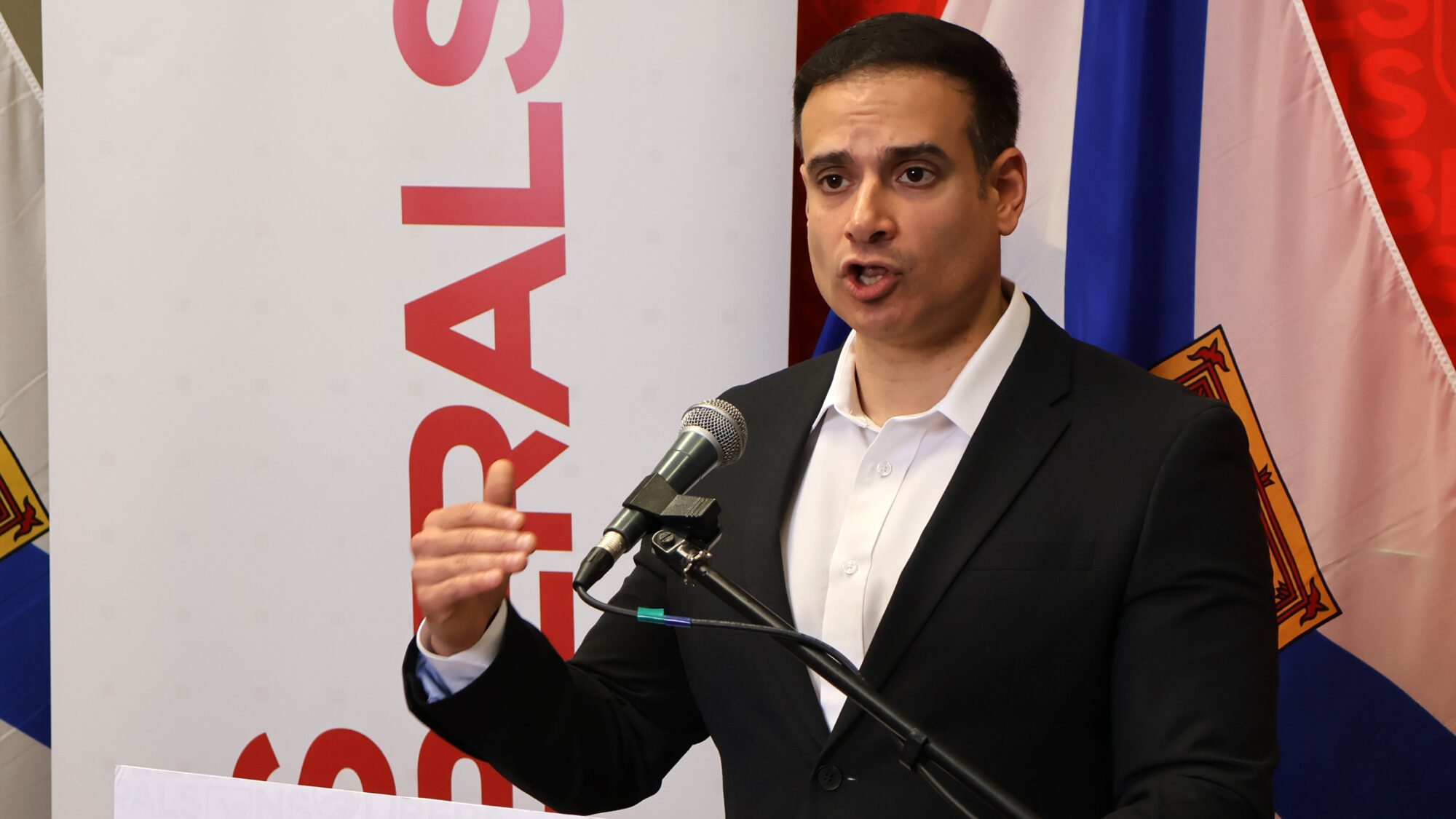Liberals promise to replace carbon tax
Churchill says tax doesn't work for Nova Scotians, proposes Atlantic region cap-and-trade program

caption
Liberal leader Zach Churchill promised to get rid of the federal carbon tax for Nova Scotians on Thursday. He wants to replace it with a cap-and-trade plan that covers all of the Atlantic provinces.The Nova Scotia Liberals promised Thursday to eliminate the carbon tax, saying they would replace it with a cap-and-trade agreement between all four Atlantic provinces.
Leader Zach Churchill said the federal carbon tax “isn’t the right policy for pollution pricing in Atlantic Canada” during a news conference in which he laid out the party’s 100-day plan should it be elected.
He said one of the first actions his government would take would be to open talks with other Atlantic provinces about a new carbon pricing system.
Provinces that opt out of the federal carbon tax program must implement their own carbon pricing system to meet national standards.
Churchill has said previously that Premier Susan Holt of New Brunswick agrees with the cap-and-trade plan. He said on Thursday that he hasn’t spoken to the premiers from Prince Edward Island or Newfoundland and Labrador. However, he said he has faith the plan would work “because we’ve got four governments who do not want the carbon tax.”
Holt has said she wants to eliminate the carbon tax in New Brunswick, while premiers Dennis King of P.E.I. and Andrew Furey of Newfoundland and Labrador both asked the federal government to stop carbon tax increases in their provinces earlier this year.
A cap-and-trade system would see a limit placed on carbon emissions and a finite number of emission allowances introduced. Carbon emission allowances could be traded between companies.
Companies that go over the emissions cap would have to purchase more allowances, while those that stay under it are then allowed to sell cap room to other polluters.
Nova Scotia had a cap-and-trade system in place under an earlier Liberal government from 2019 to 2023. Emission caps were set at 12,148,000 tonnes of carbon dioxide in the final year of the program.
It was replaced by an output-based pricing system which began in 2023 under the Progressive Conservatives. Under this system, regulated facilities must fall below a target level of emissions based on individual performance standards or face fines.
A repealed carbon tax
Churchill said that if the federal government scraps the carbon tax entirely, as the federal Conservative party is promising to do, then the cap-and-trade plan would be scrapped as well.
“If the federal legislation changes, we will be focused on a renewable energy plan,” he said.
“Instead of building all of these wind farms to ship green hydrogen overseas, at a less efficient energy point, we’re going to make sure we’re building up our energy here for Nova Scotians, so that we reduce emissions provincially and reduce power bills.”
Several companies have been approved to install wind turbines in Nova Scotia to produce green hydrogen and ammonia. Projects from one of these companies, EverWind, would see up to 84 turbines installed across the province.
The markets for green hydrogen and ammonia are mostly overseas.
The provincial government is aiming for 80 per cent of Nova Scotia’s electricity to come from renewable sources by 2030 and to be net zero by 2050.
Liberals’ 100-day plan
Other tenets of Churchill’s 100-day plan are lowering HST by two percentage points, doubling the Seniors Care Grant to $1,500, building and expanding 40 collaborative care clinics and getting started on building 80,000 homes.
He also criticized the provincial government’s choice to breach the fixed-election date of July 15, 2025. The Houston government amended the province’s Election Act in 2021 to set the election date as the third Tuesday of July every four years.
He said he believes this election “was called with the intention of having a low voter turnout, because it tends to benefit the incumbent government.”
“It’s certainly an election where the advantages are stacked in the government’s favour.”
About the author

Linus Mulherin
Linus Mulherin is a journalism student at the University of King's College. Born in the N.W.T., he was raised in the Annapolis Valley.
